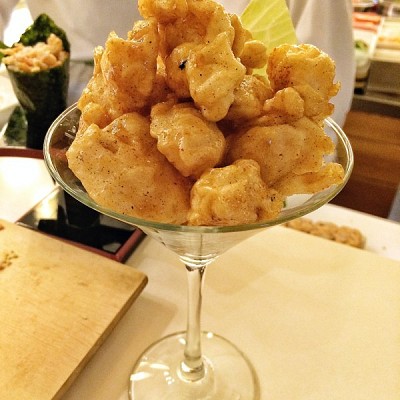OT Cybersecurity or Operational Technology Cybersecurity keeps computer systems, networks, and digital information safe from unauthorized access, theft, damage, and other cyber threats. It includes a lot of different technologies, processes, and practices meant to protect the privacy, integrity, and availability of digital assets.
The food industry is important because it feeds people all over the world. As the industry depends increasingly on technology and systems that work together, it is also becoming more vulnerable to cyber threats.
OT Cybersecurity has become a very important issue for food businesses because they could lose sensitive information, have their operations interrupted, or even risk the safety of their food.
We Will Talk About Cybersecurity in the Food Industry You Might Need To Learn
Food Safety May Be Affected by cyberattacks
In the past few years, cyber-attacks have been aimed at industrial control systems that control temperature, humidity, and other important things for keeping food safe. These attacks can cause system problems, making food unsafe to eat.
A cyber threat on a plant that makes food can spread food poisoning and even kill people. cyberattacks could hurt the safety of food. As the food industry uses more and more technology, cybercriminals may find flaws in the digital systems used to monitor and control food safety.
For example, if a cyberattack breaks the systems used to track food processing and storage temperatures, this could cause food to go bad or get contaminated. In the same way, if hackers got into the systems that track how food is distributed, they could mess up the supply chain and cause delays or shortages.
The Food Sector is a Primary Cyberattack Target
A report from the Center for Strategic and International Studies says that the food industry is the second most targeted sector after healthcare. The report says that the food industry is the target of 20% of all cyberattacks. Because the industry depends on technology, systems that work together, and supply chains, it is a good target for cybercriminals.
There are several reasons why cyberattacks are most likely to happen in the food industry. First, the sector relies heavily on technology and automation, such as control systems, sensors, and data management systems, which can be vulnerable to cyberattacks.
To reduce the risk of cyberattacks, the food industry should put OT cybersecurity at the top of its list of priorities and put in place strong security measures to protect its most important systems and data.
Second, the food industry is very interconnected. The supply chain includes growers, processors, manufacturers, distributors, and retailers. This gives cyber attackers many ways to get into the system.
Insider Threats Are A Major Threat
Employees, contractors, or vendors with access to the company's systems and data are considered insider threats. These people can hurt the company's cybersecurity guide on purpose or by accident.
Insider threats can steal sensitive information, break systems, or cause problems. Insider threats in the food industry can make food unsafe or steal sensitive information, like customer data.
Insider threats can be planned, like when employees steal information for their gain or try to break the company's systems. They can also happen by accident, like when employees fall for phishing scams or give out sensitive information by mistake. In both cases, threats from inside the organization can cause financial, legal, and reputational damage.
Ransomware Attacks Are Growing
Yes, you're right. In the past few years, ransomware attacks have become more common, and they have hurt more and more businesses. Ransomware is malware that locks up a person's files by encrypting them and then asking for a ransom in exchange for the key to unlock them.
Ransomware attacks are now a major problem for the food industry. Cybercriminals use ransomware to lock businesses out of their computers so they can't access their data. The attackers then ask for a ransom payment to get the systems back up and running. In the food business, a ransomware attack can mess up the supply chain and cost a lot of money.
Independent Vendors Are A Weak Link
Third-party vendors, such as logistics providers, software vendors, and equipment suppliers, are very important to the food industry. Often, these vendors have access to the company's systems and data, making them a possible weak link in the cybersecurity chain. If a third-party vendor's system is broken, it can lead to a breach in the company's systems.
Regulations Are Expanding
Security in the food industry is getting more attention from regulatory bodies worldwide. For example, the US Food and Drug Administration (FDA) has advised on how to keep medical devices used in the food industry safe from cyberattacks.
The General Data Protection Regulation (GDPR) of the European Union also has rules about data protection and ot cybersecurity. If you don't follow these rules, you could be fined and hurt your reputation.
IoT Devices Are A Developing Problem
In the food business, Internet of Things (IoT) devices are becoming increasingly popular. IoT devices are used to keep an eye on the temperature, humidity, and other things that are important for keeping food safe.
However, these devices are vulnerable to cyberattacks and can serve as entry points for hackers. As more and more devices connect to the internet, cyberattacks on the food industry will become more likely.
Cyber Insurance Is Required
Businesses in the food industry need cyber insurance now more than ever. Cyber insurance policies cover losses like business interruption, data recovery, and legal costs that come from cyberattacks. Cyber insurance can also help a business get back on its feet after a cyberattack hurts its reputation.
Conclusion
OT Cybersecurity concerns the food business. Cyberattacks can cost food firms a lot of money, damage their brand, and render their products unsafe as they employ more technology. Food firms need strong cybersecurity safeguards to protect their networks, systems, and data.
Food industries must also prioritize cybersecurity. This implies that they should monitor their networks and systems for unusual behavior and respond immediately to security breaches.
Good cybersecurity ensures food supply chain safety and reliability. Food firms must watch out for cyber dangers and protect their systems, networks, and data as long as technology is crucial.






































